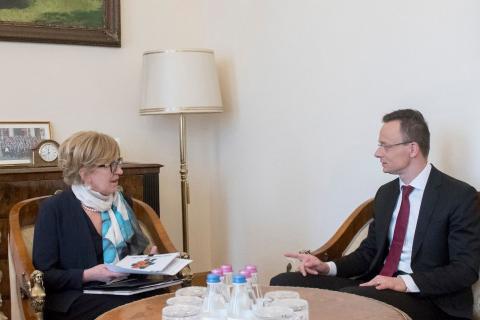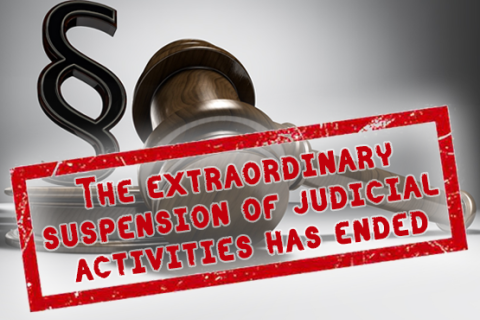Részletes keresés
The best future practices in the interest of the child – this will be the subject of the international conference on the application of the revised Brussels IIA regulation, organized jointly with the Ministry of Justice, held at the Hungarian Academy of Justice, on 7-8 November.
The application deadline was 23 August for those who have chosen the classical career path to become a judge, and intend to work as trainee judges.
The National Office for the Judiciary (NOJ) - by possessing the knowlegde accumulated in the field of digitalisation of courts - could play a major role in Hungary’s information technology export.
The Council of Europe’s Group of States Against Corruption (GRECO) would radically limit the immunity of the Hungarian judges – says the report on Hungary published today.
Administrative and labour courts were abolished as of 31 March 2020. In administrative court cases the Budapest-Capital, Budapest Environs, Debrecen, Győr, Miskolc, Pécs, Szeged and Veszprém Regional Courts proceed with regional competence on first instance.
Seven years after signing their joint declaration, representatives of state institutions and organizations have evaluated their last year's anti-corruption activity in the Parliament.
The National Judicial Council – as the representative of the Hungarian Judiciary in the Regional Cooperation of the Regulatory Judicial Authorities of the Balkan Area - has accepted the Hungarian opinion regarding the „Permanent Office” of the Balkan Area Cooperation with its decision No. 89/2012 (XI.19.) OBT.
The extraordinary suspension of judicial activities – in effect since the 15th of March 2020 - has ended. According to Government Decree 74/2020 (III.19.) on certain procedural measures prevailing during the state of danger the courts also operate during the state of danger, however, the measures to protect the health of court staff and clients in the current epidemiological situation must continue to be complied.
In the first three months of 2019, the number of cases finished by the courts was invariably higher than the number of cases launched in the courts.
'We have gathered today to celebrate the foremost members of our profession; judges, court leaders, clerks and members of the court staff'.
Dr. Sándor Fazekas, president in office of the National Judicial Council (NJC) has started his solemn speech with these words.







